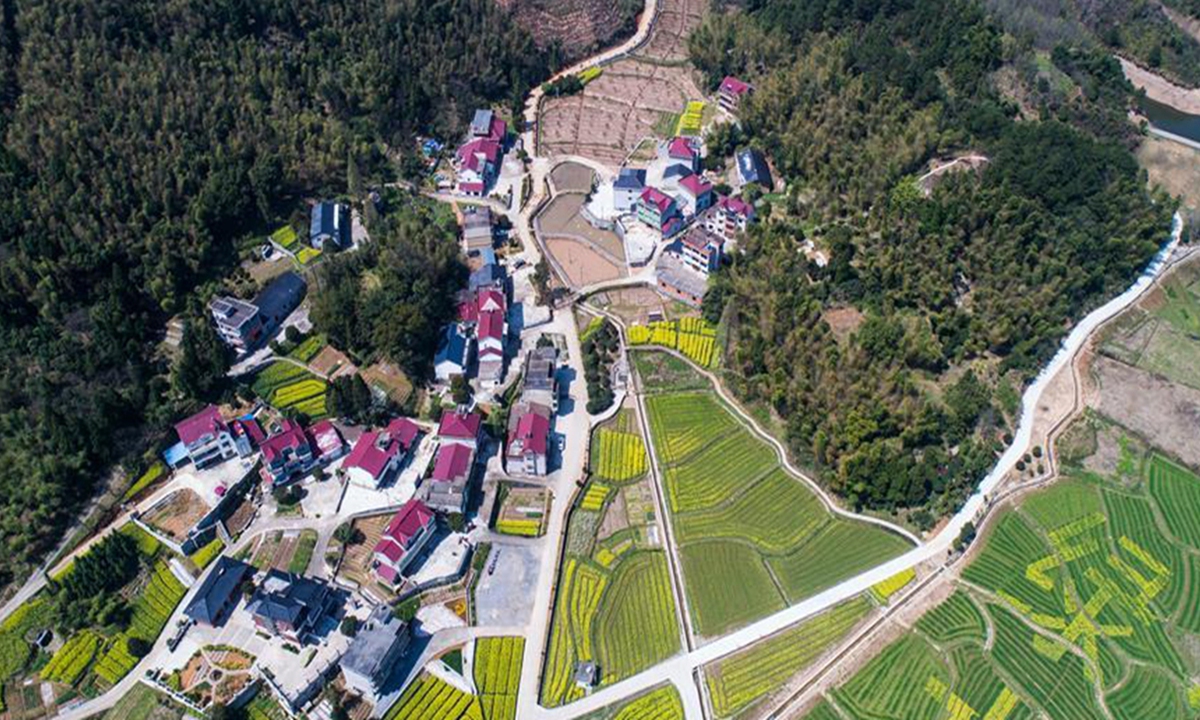
Photo: Xinhua
The 2022 Winter Olympics are going on in Beijing. A modern China has been fully demonstrated through the splendid opening ceremony, modern venues, and the outstanding performances by Team China. At the same time, however, a poor mentally-ill woman in Feng County, East China's Jiangsu Province has also attracted public attention. The woman, who was trafficked more than 20 years ago, has given birth to eight children and was chained in a hut by her husband. The incident has been widely circulated on the Internet, drawing public sympathy and anger. Both foreign media and Chinese people have raised the question: who represents China today, the woman Olympic champions or the poor woman?I would like to say that both the champions and the abducted mother of eight children, are real symbols of China and represent the diversity and complexity of China, together with many other symbols. Development in China is uneven. There are some things that are quite modern and advanced in China, including high-tech industries and a world-leading infrastructure with high-speed rail as an example. In addition, increasing urbanization has created a middle-class population of several hundred million people, and the beautiful downtown areas of some Chinese major cities are already comparable to those of developed countries.
However, this is only one side of China. There are still relatively backward rural areas with a large number of people who have been lifted out of absolute poverty but still have very low incomes and live a hard life. Some recent epidemiological investigations and the case of the poor mother stand as evidence.
China's social construction is also uneven. Some regions have a relatively complete legal system to guarantee fairness and justice, and some others are still stumbling in this area, where human rights protection is not in place and there are even a few blind spots of justice. This gap often correlates to varying degrees with the gap in economic development.
Trafficking of women and young girls is usually happening within economically backward regions. When poverty leads to lower average levels of education, abuses of public power and violations against vulnerable groups are more likely to occur, and people are less capable of defending their rights.
That's why most Chinese believe in the importance of rapid economic development. Enriching more people, developing education, and improving people's livelihoods are the most effective means to promote human rights. Development is the key engine for solving all of China's problems.
Even a US journalist told me a few years ago that no matter how you describe China, good or bad, there is evidence to support it. China is complicated. But no one should deny that the country is constantly changing and progressing. I reject showing only the bright side of China, which we all know is an uneven representation. I also object to hyper-focusing on a specific problem, as if that problem wholly reflects the real China. With attention only on problems, the country's modern progress could be discredited as an illusion and even be described as morally shameful.
I believe that China needs to continuously replicate and extend its advanced elements to enhance the forward momentum of society. At the same time, every specific problem reflecting social backwardness should be seriously addressed without concealment. Our society needs to have the ability to achieve a balanced distribution of attention. We should not let any off-track idea dominate the collective perception of society.
The author is a commentator of the Global Times. opinion@globaltimes.com.cn


